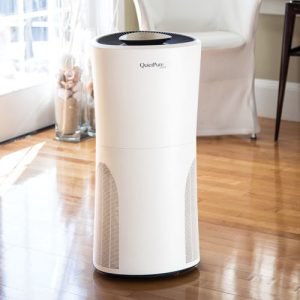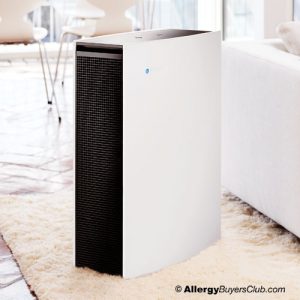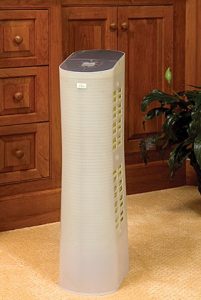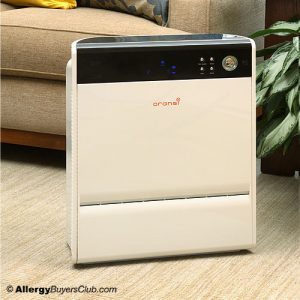How to Choose an Air Purifier?
Choosing an air purifier can be a confusing task. With hundreds of different machines on the market, choosing one that’s appropriate for your specific needs can be daunting to say the least. The technology that has developed over the past decade has produced some impressive machines and some not so impressive, and a few are propelled by very misleading marketing. Let’s start by asking a few simple questions, and then we’ll familiarize you with the basic terminology.
Let’s Get started!
1st step: what are you looking to accomplish? Air purifiers are designed for different needs, selecting one should be specific to you and not because your Uncle Bob chose an air purifier and thinks it’s great.
3 Main categories of air purifiers:
Allergens (particulates) – Mold, pollen, dust, dust mite allergens and pet dander. Basically the stuff most of us have reactions to at some level.
Smoke, Gas & Odor Control – Cigarette smoke, chemicals from the outside such as air pollution or a nearby pollution source such as a factory or a gas station. Also chemicals inside, such as cleaning fluids, formaldehyde from carpets, new furniture, food odors, and pets.
Bacteria & Viruses – Some air purifiers will actually remove bacteria and viruses. These are appropriate for people with compromised immune systems, serious health issues or conditions such as asthma or bronchitis.
Where to put the air purifier?
2nd step: how large a space you want to purify? Something to understand is that most air purifiers are room specific. While a manufacturer may say their unit can clean 1500 square feet, it would have to be totally open space, because you can’t circulate air around corners, or up a flight of stairs, or suck air out of a room down a hallway. The manufacturers that make machines with fans don’t claim to clean multiple rooms, so how is it that the ones without fans do! Use your common sense. Remember the old saying “If it sounds too good to be true, it probably is.”
Generally speaking, the most important rooms in your home to purify are your bedrooms, followed by your main living space. Square footage is based on an 8 foot ceiling, so a 12 x 10 foot bedroom with an 8 foot ceiling would be 120 square feet. The square footage listed by the machine’s manufacturer is on high speed. You should choose an air purifier with about double your desired capacity in square footage, because of fan noise and increased air circulation. The best way to run most machines is on high speed when you’re away from the room and reduce to a comfortable listening level when you are actually in the room.
CADR Ratings
CADR – the Clean Air Delivery Rate – is an efficiency standard established by the Associates of Home Appliance Manufacturers (AHAM) in conjunction with the product manufacturers. This rate determines how well an air cleaner reduces pollutants such as tobacco smoke, pollen and dust. By using CADR, the recommended maximum room size for each unit can also be determined. While useful, many of the manufacturers of the higher end machines on the market do not belong to AHAM because of the cost and the limited nature of AHAM testing. These air purifiers are not available to purchase in your local outlet store, so don’t eliminate automatically a machine because it does not have an AHAM rating. Many of the air purifiers not rated by AHAM are many more times efficient then the top rated AHAM machines.
Air Purifiers Main Types:

HEPA filters are time tested and we feel are the most effective air purifiers. HEPA filters are finely pleated and only allow clean air through the tiny holes in the filter. They trap the particles that are drawn into the air purifier. Some air purifiers like the QuietPure machines which use HEPA filtration can actually filter out bacteria and even viruses as well. These kinds of air purifiers are particularly safe and recommended because they do not produce ozone. Just like any type of product, some air purifiers are better than others. A good machine will filter 90% or more of the air going through it. A poorly constructed air purifier will allow air to pass around the filter because it is not sealed well.

Electrostatic air purifiers draw the air into a small ionizing chamber that puts a very small charge on the particles only to make them stick to a positively charged filter about 12 inches away. It is similar to trying to pass iron filings past a huge magnet. The Blueair air purifier uses both mechanical and electrostatic filtration that emits no ozone externally and can remove particles as small as .1 microns.

Ultra Violet Light machines are generally effective when used in conjunction with a good filtration system. In a water purifier that utilizes ultraviolet light, the water is in contact with the ultraviolet light for a long enough time for it to be effective. With an air purifier, the air is moving very fast through the machine and generally on its own will not affect a majority of the particles going through it. If you are interested in an air purifier that utilizes hepa filters and ultra violet light together well, we highly recommend the Alen Paralda.

Photocatalytic Oxidation (PCO) Filter: This filter is coated with titanium dioxide, which produces highly reactive ions and electrons when combined with the UV light from the UV-C lamp. When the bacteria, viruses, and gases come in contact with the surface of the filter these highly reactive ions attach themselves to them destroying them through oxidation. We recommend the Oransi V-HEPA Plus Air Purifier which combines a pre-filter and HEPA filter with the PCO filter.
Ozone/Ionizer air purifiers produce electrical charges that can go through walls just like a portable phone does. They cause particles to stick together which pulls them out the air by gravity. However, it is rarely that simple these ‘sticky particles’ will also stick to walls, furniture, window blinds, your lungs, and some will even make it back to the machine itself. Basically they turn your house into inside-out Scotch Tape. When inhaled, ozone can damage the lungs. Relatively low amounts can cause chest pain, coughing, shortness of breath, and, throat irritation. Ozone may also worsen chronic respiratory diseases such as asthma and compromise the ability of the body to fight respiratory infections. Manufacturers and vendors of ozone devices often use misleading terms to describe ozone. Terms such as “energized oxygen” “plasma” or “pure air” suggest that ozone is a healthy kind of oxygen. Ozone is a potentially dangerous gas with a different molecular structure. If you want air purifier that does not emit ozone and low maintenance try an Airfree Air Sterilizer. It kills mold and bacteria by incinerating them in a ceramic core.
Don’t be misled by false advertising!
Contrary to what you may be led to believe, the technologies used in portable air purifiers are not used on submarines or in the Pentagon as some web sites claim.
Don’t be sold on claims that cannot be verified.
Don’t be overly impressed by a seal of approval on an air purifier. When you see a seal by a national health agency on a machine, most agencies are not endorsing that product. They are saying that the machine does take some particles out of the air, and are often paid millions of dollars for that seal. The electrostatic charge from your television takes particles out of the air as can be seen by the dust that accumulates to its screen, but it does not benefit your health.
Remember when a manufacturer claims that their air purifier will make the air in your home smell clean or fresh, ask yourself this question: What is that smell? Since air has no smell, the machine is most likely producing harmful ozone.
As a final note, remember that you are purchasing an air purifier that is going to affect your health and the health of your family. Be careful where you purchase it. Your first stop should not be the local mall. Buy from a company that gives you information that makes sense. We are more than happy to assist you and you are welcome to call us here @ 888-236-7231




